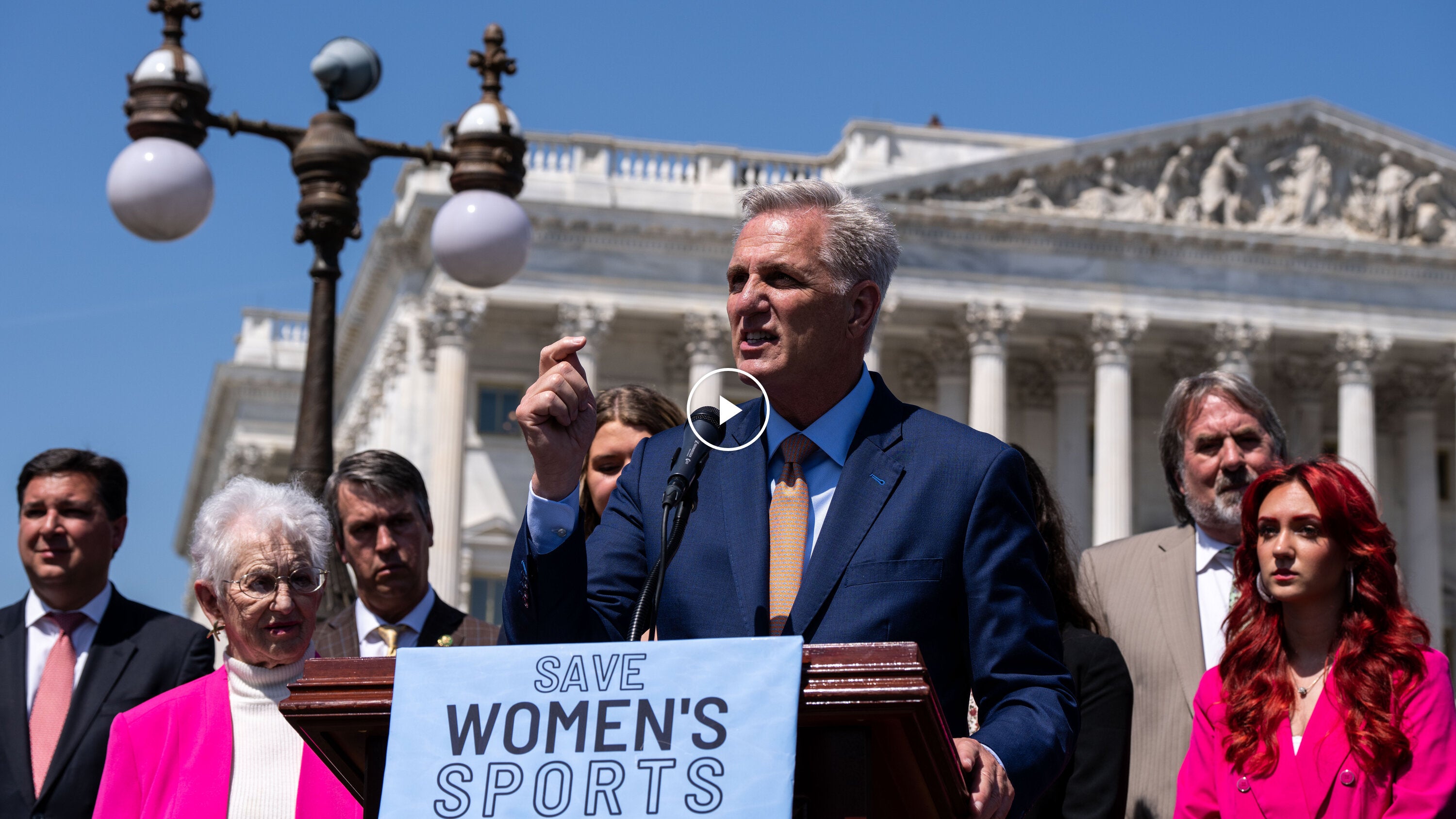Indiana High School Athletic Association Bans Transgender Athletes: The Trump Order Effect

Table of Contents
The IHSAA's Policy and its Rationale
The IHSAA's policy regarding transgender athlete participation is complex and multifaceted. It essentially restricts transgender girls from competing in girls' sports. The specific regulations are not explicitly detailed in a single document but rather inferred from their interpretation of existing regulations and communicated through various statements and rulings. The stated reasoning behind this restrictive approach often centers on concerns about competitive fairness, arguing that transgender girls possess a biological advantage over cisgender girls. However, this reasoning has been widely challenged by medical and legal experts who highlight the significant variability in athletic ability irrespective of gender identity. The IHSAA's justification lacks transparency and definitive scientific backing, relying on generalized assumptions rather than individualized assessments.
- Eligibility criteria for transgender girls/women: The policy requires a complex evaluation process that may include hormone level testing and other criteria, creating ambiguity and potential barriers to participation.
- Hormone level requirements: The specific requirements are not publicly available and often appear to contradict current medical understanding of transgender hormone therapy.
- Appeal processes: The availability and efficacy of appeal processes for transgender athletes remain unclear, raising concerns about due process and equitable treatment.
- Specific sports affected: While the policy primarily targets sports deemed more physically competitive, it casts a shadow of uncertainty over participation in all girls' sports.
The Influence of Federal Guidance (or Lack Thereof)
The Trump administration's stance on transgender rights significantly impacted the legal and political landscape surrounding transgender athletes. While there was no single, nationwide ban enacted during that period, the Trump administration's policies and rhetoric fostered a climate where states were emboldened to create their own restrictive policies. The absence of strong, consistent federal guidance protecting the rights of transgender students in sports opened the door for policies like the IHSAA's ban. This created a patchwork system, with states adopting differing rules, leading to significant legal uncertainty and challenges in ensuring consistent treatment for transgender students across the nation.
- Relevant Supreme Court cases or legislation: While no Supreme Court cases directly address this issue in high school sports, Title IX, a federal law prohibiting sex-based discrimination in schools, is often cited in arguments for transgender inclusion.
- Highlighting any conflicting state laws: The legal landscape is constantly evolving, with some states enacting inclusive policies, while others follow more restrictive approaches. This creates a complex legal tapestry.
- Discussing potential legal challenges to the IHSAA's policy: The IHSAA's policy is vulnerable to legal challenges on the basis of Title IX, arguing discrimination on the basis of sex and gender identity.
Impact on Transgender Athletes and the Broader Community
The IHSAA's ban has profound consequences for transgender athletes in Indiana. It causes significant emotional distress, potentially leading to mental health challenges such as depression and anxiety. The exclusion from competitive sports can also severely impact their self-esteem and sense of belonging. Beyond individual athletes, the ban sends a damaging message to the broader community about the value and acceptance of transgender individuals. This could foster further discrimination and isolation, impacting school morale and community relations.
- Loss of participation opportunities: The ban directly deprives transgender girls of the opportunity to participate in sports, impacting their physical and mental health.
- Social isolation and discrimination: The ban can increase instances of bullying, harassment, and social exclusion for transgender students.
- Impact on school morale and community relations: The ban creates a divisive environment, potentially impacting the overall atmosphere and relationships within the school and wider community.
Alternative Approaches and Future Outlook
Many states and organizations have adopted more inclusive policies that prioritize both fairness and inclusivity. These policies often involve individualized assessments, taking into account factors beyond simple binary gender classifications. This approach allows for participation while addressing concerns about fair competition. The future outlook for the IHSAA's policy remains uncertain, with potential legal challenges and ongoing advocacy efforts to promote change. Legislative reform at both the state and federal levels is necessary to provide a clear and consistent legal framework for transgender athlete participation.
- Examples of inclusive policies from other states or organizations: The NCAA, for example, has implemented more nuanced guidelines that consider individual circumstances.
- Potential legal challenges and their outcomes: Legal challenges are expected, and their outcomes will significantly shape the future landscape of transgender athlete participation in Indiana.
- Calls for legislative reform: Advocates are pushing for legislative changes that would ensure fair and inclusive policies for transgender athletes.
Conclusion: Indiana High School Athletic Association Bans Transgender Athletes: A Call for Understanding and Inclusivity
The IHSAA's ban on transgender athletes represents a significant setback for inclusivity and equal opportunities in Indiana high school sports. The policy's connection to broader political and legal contexts underscores the need for nuanced understanding and thoughtful policymaking. Fairness, inclusion, and equal opportunities for all student-athletes should be paramount. We urge readers to engage in respectful dialogue, learn more about the issue, and advocate for policies that support transgender athletes. Contact your state representatives, support organizations working to promote the rights of transgender individuals, and help build a more inclusive and equitable environment for all students in Indiana high school sports. Let's work together to ensure that the experiences of transgender athletes in Indiana reflect the values of fairness and inclusion, and that the IHSAA's transgender athlete ban is eventually overturned.

Featured Posts
-
 Lynk Lee Hanh Trinh Chuyen Gioi Va Cau Chuyen Tinh Yeu Dep
May 10, 2025
Lynk Lee Hanh Trinh Chuyen Gioi Va Cau Chuyen Tinh Yeu Dep
May 10, 2025 -
 Blockchain Analysis Giant Chainalysis Expands With Alterya Ai Acquisition
May 10, 2025
Blockchain Analysis Giant Chainalysis Expands With Alterya Ai Acquisition
May 10, 2025 -
 Parad Pobedy Bez Gostey Zelenskiy V Odinochestve
May 10, 2025
Parad Pobedy Bez Gostey Zelenskiy V Odinochestve
May 10, 2025 -
 Barys San Jyrman Hl Yhqq Hlm Dwry Abtal Awrwba
May 10, 2025
Barys San Jyrman Hl Yhqq Hlm Dwry Abtal Awrwba
May 10, 2025 -
 Novoe Vyskazyvanie Stivena Kinga Tramp I Mask Pod Ognem
May 10, 2025
Novoe Vyskazyvanie Stivena Kinga Tramp I Mask Pod Ognem
May 10, 2025
